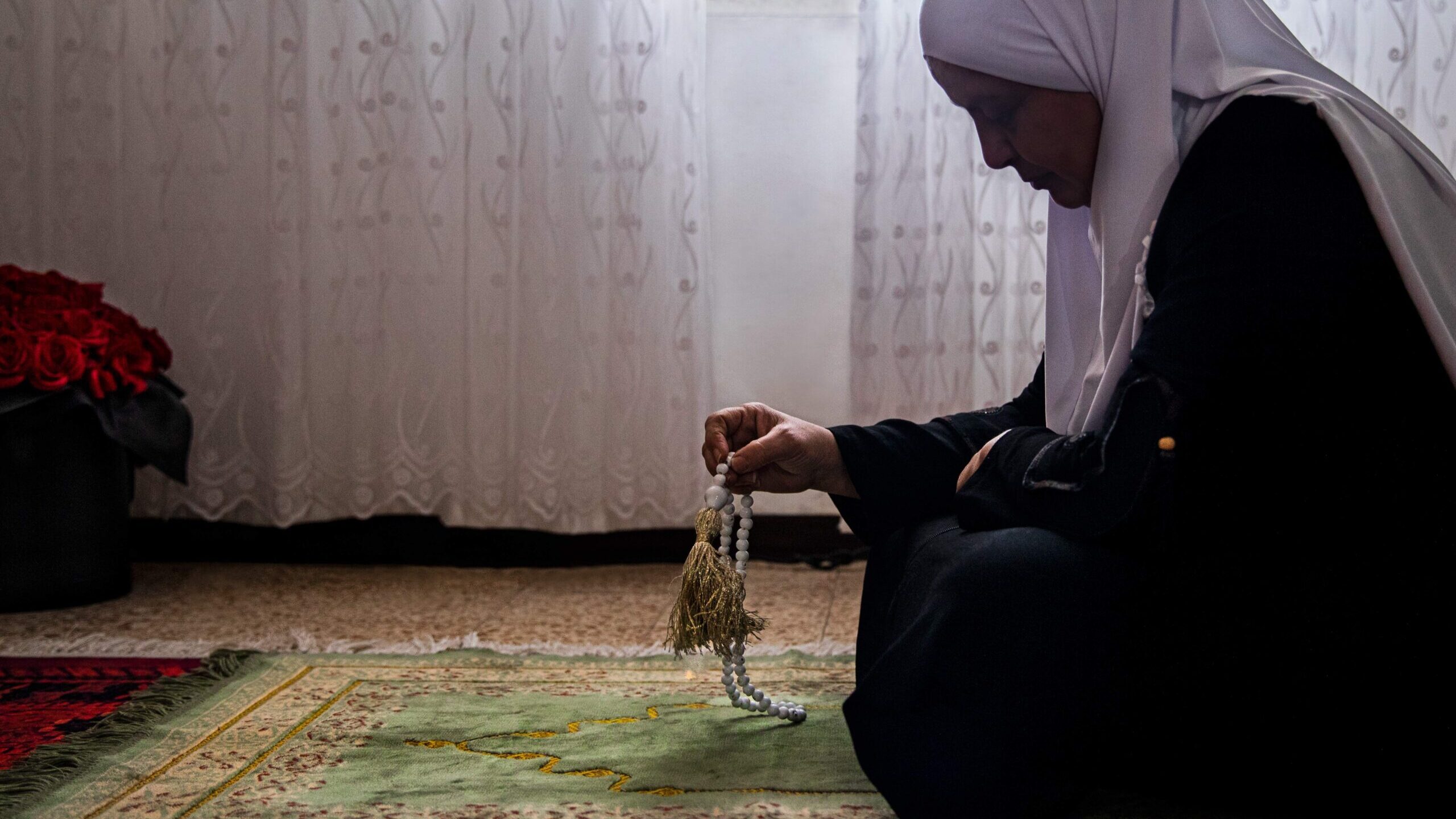‘Under Your Wing’: New Project Honors Israeli Foster Mothers
Pioneering exhibition and book delve into the complexities of foster care and adoption in Israel; some 70% of foster kids end up getting adopted, Orr Shalom organization says
“We had 24 hours to make a decision about fostering a baby girl,” says Galia Ben-Haim.
With three biological children of her own at the time – 13-year-old twins and a 6-year-old – Ben-Haim one day received a fateful call about a 1-week-old baby girl who was in urgent need of a place to stay. The call came from Orr Shalom, an Israeli organization established in 1980 that has helped thousands of foster kids find homes.
“We were told that we had up until tomorrow evening to decide whether or not we would foster her,” Ben-Haim recounted to The Media Line. “In those 24 hours, we found many reasons why we shouldn’t do it. There was only one reason we could find about why we should do it, and that was connected to finding meaning and giving back.”
Now 12, Hila was formally adopted into the Ben-Haim family several years ago, after spending several years as a foster child.
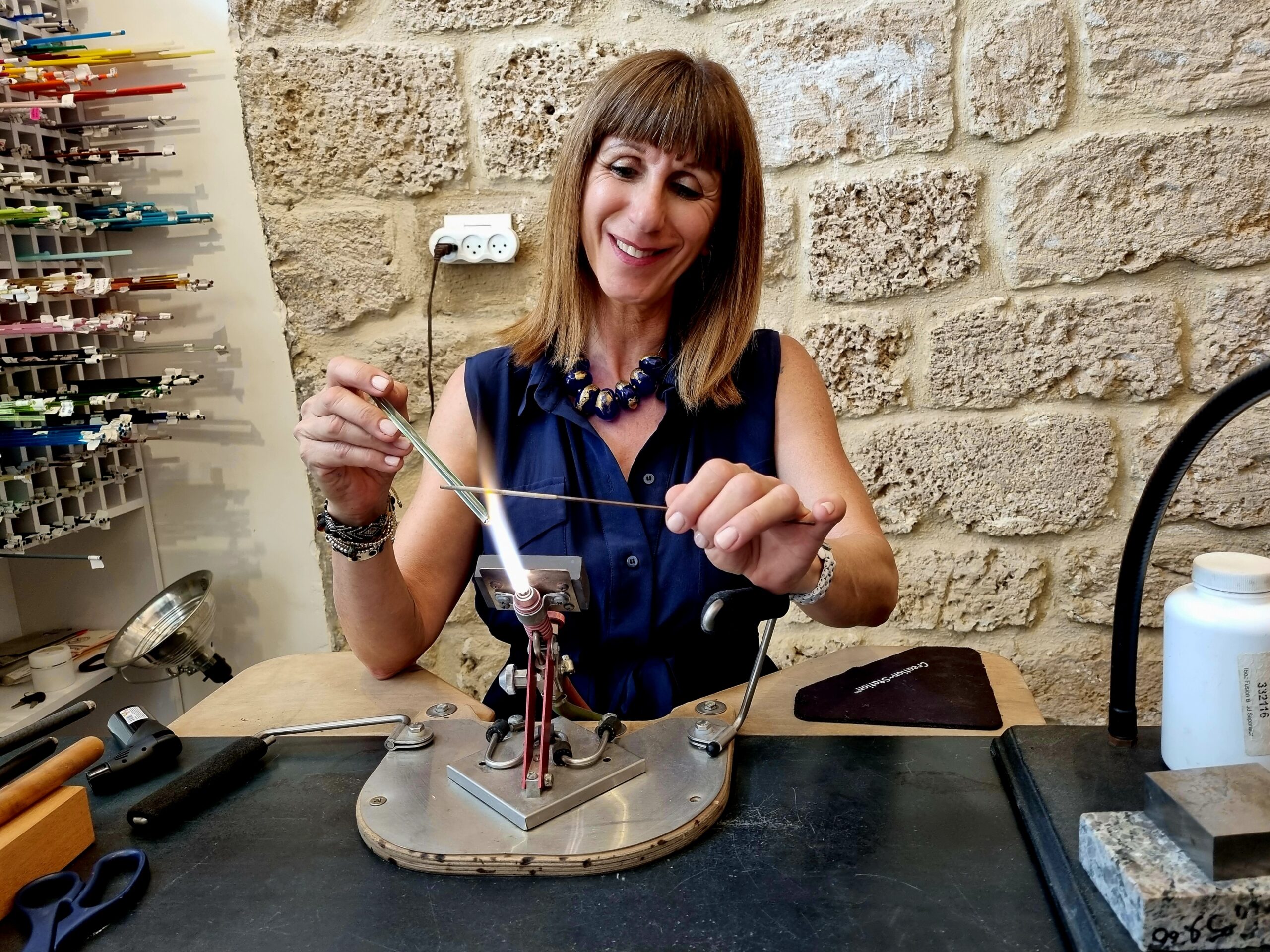
Yaara Klein-Yemin works on a new piece of jewelry in her Jaffa studio. (Maya Margit/The Media Line)
Along the way, Ben-Haim said that she received help from friends and family, as well as from professionals via Orr Shalom. Adopting a child was a long-time dream of hers, she says. “I always knew that when I had my own children that I’d also take it upon myself to raise a child in need of a family,” she explained. “My husband joined my dream and together we decided that the right moment had come.”
Ben-Haim’s touching story is one of eight that are being unveiled to the public for the first time as part of a unique project called “Under Your Wing,” named after a poem by the famous 20th-century Jewish poet Hayim Nahman Bialik.
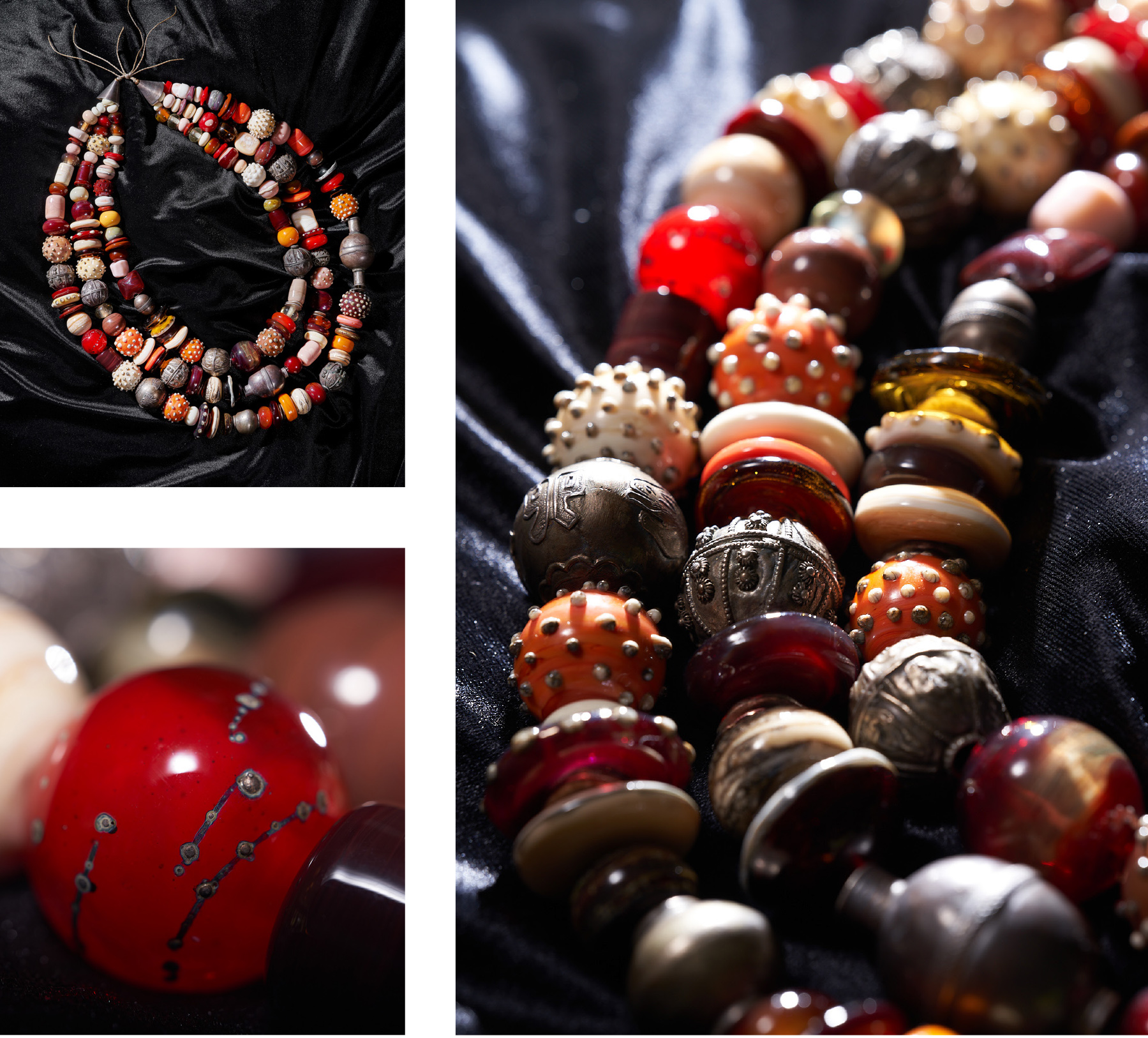
One of the custom-made pieces of jewelry designed by Yaara Klein-Yemin for “Under Your Wing.” (Zohar Ron)
Spearheaded by jewelry designer Yaara Klein-Yemin and Orr Shalom, the project includes a photography and jewelry exhibition in Jaffa, as well as a newly published book. Proceeds from the book’s sale will go toward supporting Orr Shalom.
On display in Klein-Yemin’s Open Studio gallery in Jaffa, the portrait photos of the women in question – each one captured by a different female photographer – hang alongside in-depth textual descriptions of their stories. Whether Jewish or Muslim, religious or secular, the women’s images stand as poignant testaments to the power of motherhood and the deep-seated generosity needed to raise someone else’s child.
Giving Back to Foster Parents
The goal of “Under Your Wing” is not only to raise awareness about the complicated worlds of foster care and adoption in Israel but also to give recognition to foster parents.
The idea for the project first arose some nine years ago, when Klein-Yemin and her family volunteered to take care of a group of boys at the Orr Shalom organization. The dozen or so boys ranged in age from about six to 18. As a group, they went on outings and the Klein-Yemins bought the boys things that they needed.
After a few years, Klein-Yemin decided that she wanted to go one step further and dedicate an exhibition, book, and custom-made jewelry to foster mothers. The subjects of foster care and adoption have mostly stayed out of the spotlight in Israel, she explained.
“From my perspective, these women are angels,” Klein-Yemin told The Media Line. “They’ve done something that I could never do, and I decided to dedicate my work to them and to do what I know how to do best: to expose them to the world and give them the recognition and appreciation that they deserve.”
This holiday season, give to:
Truth and understanding
The Media Line's intrepid correspondents are in Israel, Gaza, Lebanon, Syria and Pakistan providing first-person reporting.
They all said they cover it.
We see it.
We report with just one agenda: the truth.


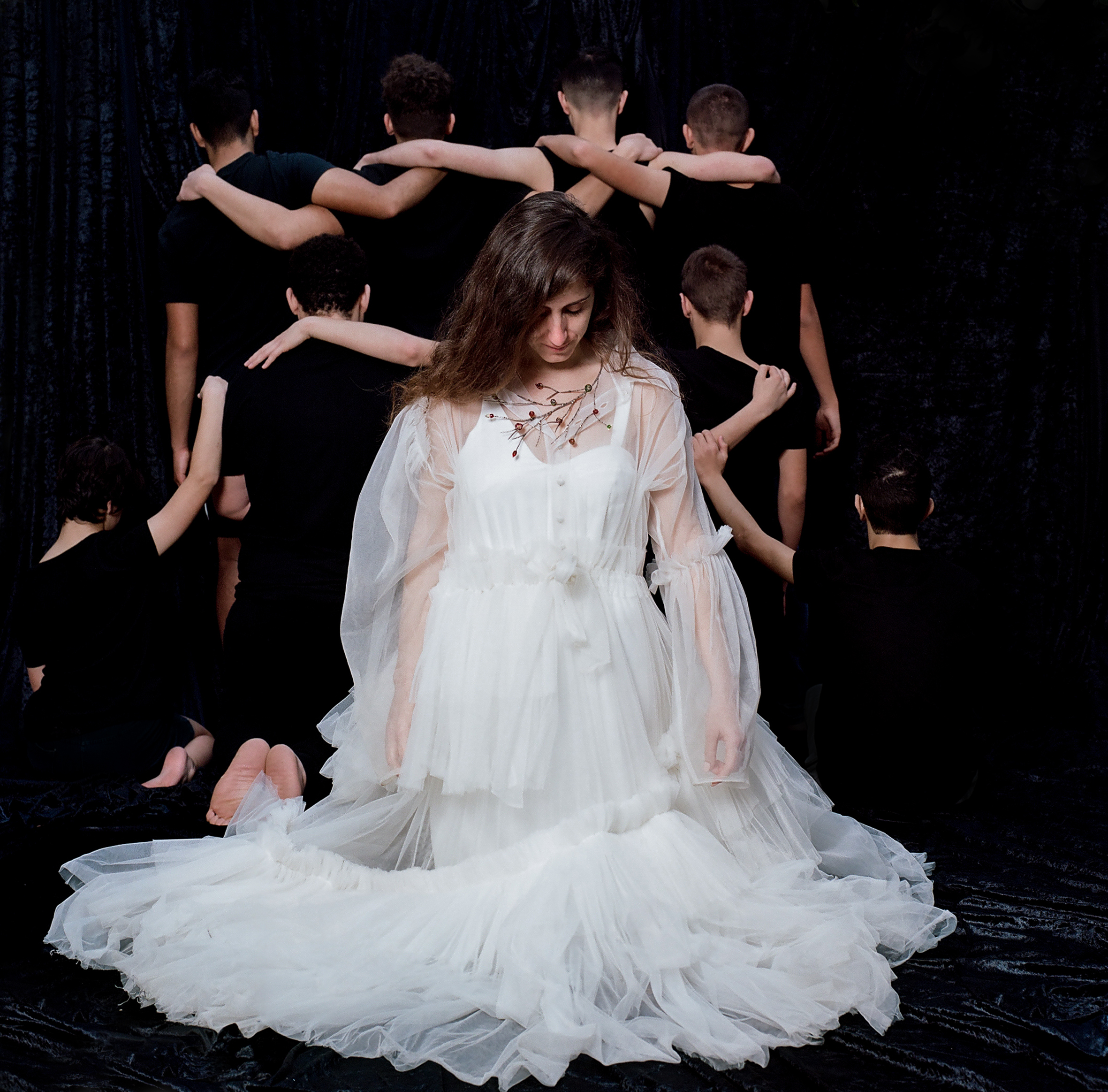
Avivit (pseudonym), one of the women highlighted in “Under Your Wing.” (Ella Barak)
The book, which was published in Hebrew but is also available in English online, tells the personal stories of each woman featured in the project. Klein-Yemin fashioned original pieces of jewelry for each participant.
“This is my way of giving back to them,” she said.
One of the women highlighted is Daphna Kedem, who has two biological children of her own. Together with her husband, Kedem fostered four siblings, including Zehavit, who was 16 at the time and is now 27.
“We were four siblings living together with Daphna and Rami,” Zehavit told The Media Line. “They’re an amazing family. It was a very colorful experience. You enter a household where the people are white, and you’re black. But I didn’t feel like the color [of my skin] was a factor at all. I didn’t feel like there was a difference between me and them. I felt amazing and that they really gave me everything I wanted: a home, warmth, and love.”
The Decision To Foster
The decision to foster is not something to be taken lightly, especially when it comes to taking in a child with disabilities.
Such was the case for Bruria Piron, who manages a school for special-needs children in the central Israeli city of Petah Tikva.
“We took a baby in that was born with a physical disability,” Piron told The Media Line. “He has no upper limbs and also has problems with his legs. He was abandoned at the hospital and came to us when he was 4 months old. We had no idea at the time what would be, and today Naor is already 18 years old.”
Piron, a religious Jewish woman, was nearing 40 years old and already had five biological children with her husband when they decided to go on the foster care journey.
“I think people are afraid of fostering, and sometimes rightfully so,” Piron related. “It changes the entire family. You can ask my kids: it changed ours completely. I think it’s a positive change but there is a process to go through and some people are afraid of it.”
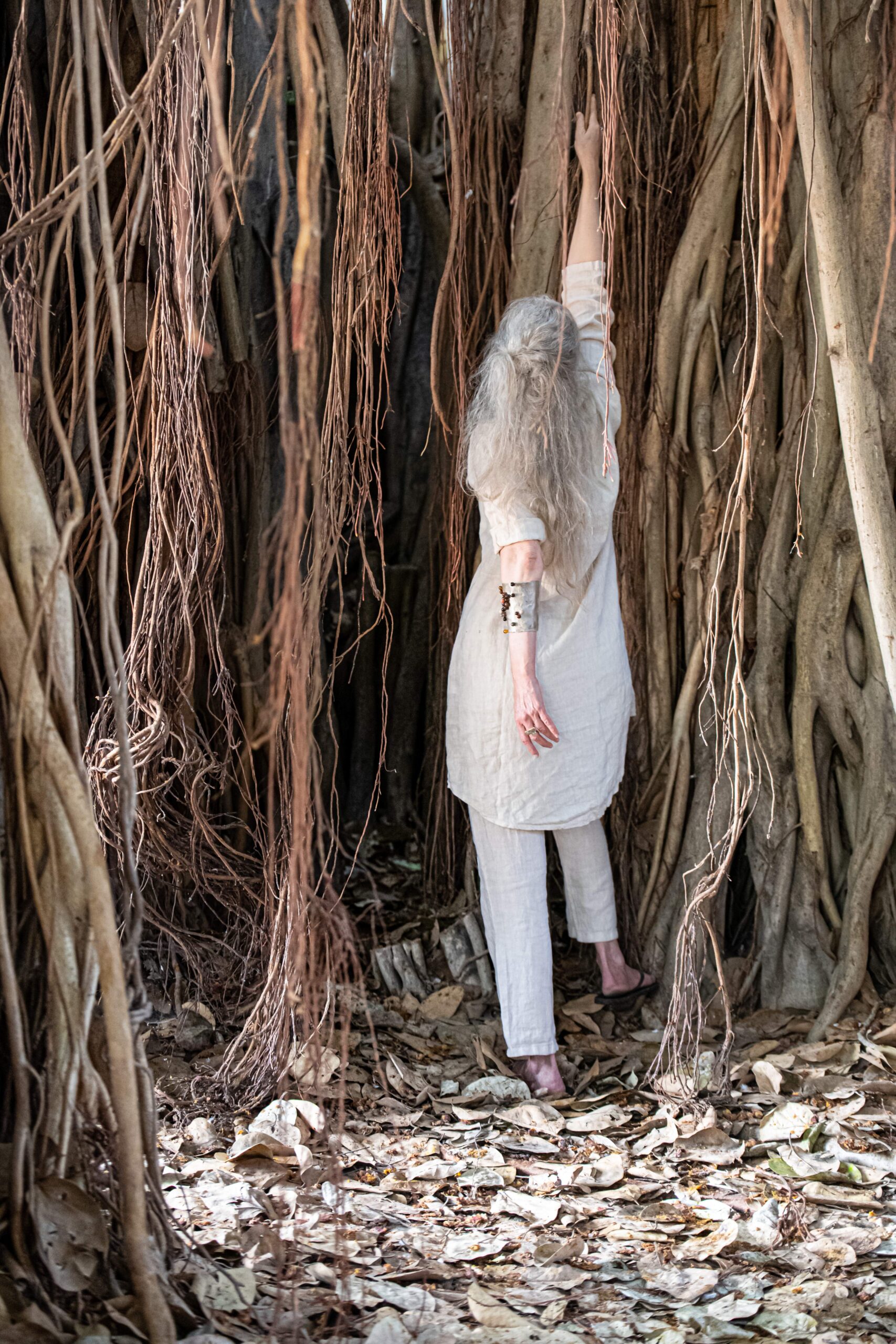
Daphna Kedem, one of the women featured in “Under Your Wing.” (Deganit Artman)
“There were periods that were not easy, but we never regretted our decision one second,” she added. The Piron family tried to formally adopt Naor but was unable to do so since his biological family refused to allow the process to move forward.
Nevertheless, many foster children do end up getting adopted, whether formally or informally, according to Orr Shalom’s CEO Tali Halaf.
“Some 70% of foster kids in Israel remain with their foster families after the age of 18,” Halaf told The Media Line. “They become a part of their foster families.”
In all of Israel, there are 4,700 children in foster care, and another 6,500 living in boarding houses and/or group homes.
Orr Shalom currently serves over 1,400 children, youths, and young adults in a variety of programs and frameworks. The organization operates under the purview of Israel’s Welfare and Social Affairs Ministry, receiving roughly 85% of its budget from the government. The rest comes from donations and other philanthropic sources.
“At any given moment there are 70 kids waiting for a family,” Halaf revealed.
While the law defines foster care as a temporary measure, adoption is a more permanent solution in which families receive legal guardianship of a child. It is significantly less common in Israel and requires a lengthy legal process.
“Roughly 100 kids get adopted each year and most of them are adopted by their foster families,” Halaf said.
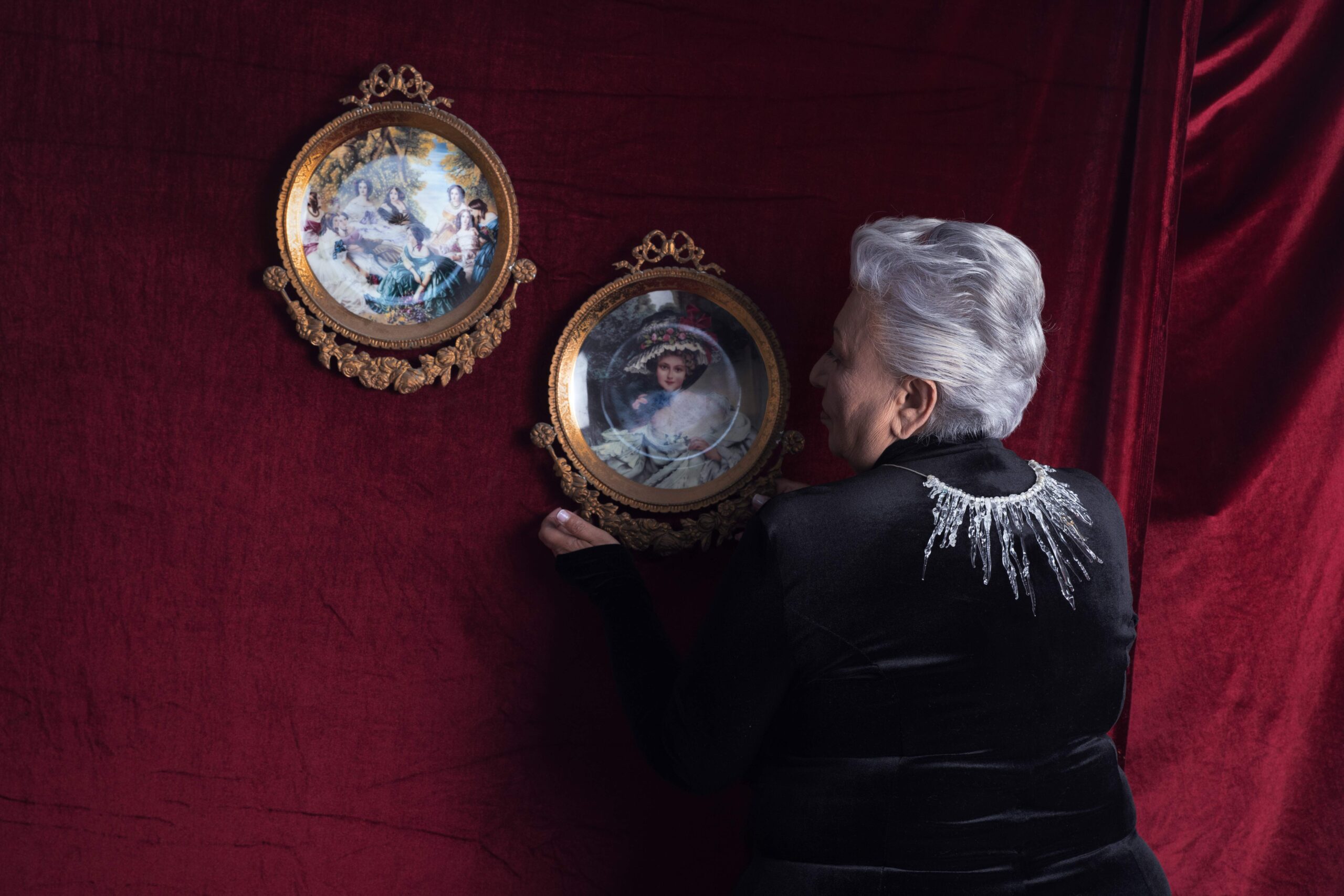
Maria, one of the women featured in “Under Your Wing.” (Yael Bar Cohen)
Most of the children in Orr Shalom’s care are under 8 years old, according to Halaf, and many were removed from their homes by welfare authorities due to parental dysfunction or severe neglect, or due to suffering from different forms of abuse.
Oftentimes, these young children are in immediate need of protection and will be placed with an emergency family for a few months. During this time, they will be assessed and eventually transferred either back home or into adoption or foster care.
Unlike in other countries, foster care in Israel is mainly carried out on a volunteer basis, Halaf explained. Foster parents in Israel do receive some financial aid in terms of expenses related to childcare, but only partially. Orr Shalom helps to cover other types of care, including social workers, psychological help, medical treatments, and extracurricular activities.
Fostering a child “is a very difficult decision to make,” Halaf said. “It’s a truly massive undertaking that requires something from every family member. Many sacrifices have to be made.”
Halaf says that the organization was proud to take part in the “Under Your Wing” project.
“This is an amazing opportunity to give these parents something in return and also to raise awareness about fostering,” she said.
“Under Your Wing” will open to the public on March 14 at Klein-Yemin’s Open Studio in Jaffa (Shimon Hatsadik 14) and remain on display until May 30. The English edition of the project’s book is available at https://beadsbyyaara.com/pages/general.
